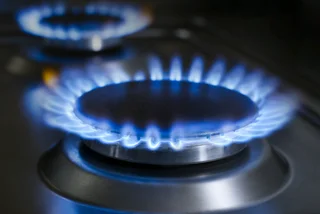Falling inflation in Czechia means that costs for many items have decreased. These include energy, agriculture, and some food prices, with further decreases anticipated.
Cheaper electricity and gas
Electricity and gas consumers in Czechia are benefiting from increasingly favorable offers as energy suppliers continue to decrease prices for customers due to lower wholesale prices compared with 12 months ago.
Household savings are substantial, with a family using gas for cooking, water heating, and heating poised to save over CZK 15,000 compared to spring prices. Signing a new gas supply contract now could result in approximately 15-percent lower costs than in March this year.
Analyst Radim Dohnal suggests that consumers take advantage of the ongoing price decline by opting for shorter-term contracts, with recommendations to consider contracts lasting no longer than until the end of 2024. Fixed offers from suppliers, like E.ON and the Summer 25 tariff from MND, offer some of the best prices, with E.ON providing competitive electricity rates with a one-year fixation.
EXPAT TIP
For a comprehensive comparison of different energy prices and tariffs offered by various companies in Czechia, see the following sites:
Major suppliers are already offering prices below government-set ceilings for 2023, although regulated components and fixed monthly payments must be factored in. Dohnal anticipates a further decline in energy prices, especially for gas, which is expected to slowly drop below EUR 50 per megawatt-hour for the following year.
Consumers with higher energy consumption will see greater savings. For instance, electricity costs for those using 2,000 kilowatt-hours (KWh) annually have dropped significantly, with potential savings of over CZK 1,000.
Furthermore, suppliers are voluntarily reducing prices for indefinite contracts, providing additional opportunities for savings without the need to switch providers. E.ON, Pražská plynárenská, and innogy have all taken steps to reduce energy prices for non-fixed customers, benefiting hundreds of thousands of households.
A household that cooks and heats water with gas, and consumes about 1,800 cubic meters per year, could sign a contract in March 2023 with an average annual payment of around CZK 56,000. In contrast, those who sign the same contract in September will pay an average of CZK 6,000 crowns less per year.
Agriculture prices and products getting cheaper
In August, the Czech Republic witnessed a significant year-on-year increase in producer prices across various sectors, except for agriculture, where the decline continued to deepen, reaching a substantial 16.4-percent drop. This decline was also notable in a month-on-month comparison, with a decrease of 4.5 percent. These producer prices play a crucial role in indicating future price trends for consumers.
PARTNER ARTICLE
For four consecutive months, agricultural producer prices have been on a declining trend, with the pace of decline intensifying each month. In May, prices dropped by 10.2 percent, followed by 13.8 percent in June, 14.3 percent in July, and a notable 16.4 percent in August. Crop production suffered the most, with a year-on-year price decrease of 26.2 percent, while livestock production saw a 2.4 percent decrease.
Economists and analysts suggest that food retailers and traders should reflect these lower agricultural prices in their offerings by reducing prices for consumers. The decline in agricultural costs, coupled with improvements in the energy markets, provides a compelling case for food price reductions in stores. Failure to lower prices could be seen as an abuse of market power at the expense of consumers.
MONTH-ON-MONTH CHANGES in FOOD PRICEs
- Vegetables - down by 6.7 percent
- Potatoes - down by 13.3 percent
- Eggs - down by 6.6 percent
- Poultry meat - down by 2.3 percent
- Semi-skimmed milk - 3.3 percent
- Cheeses and curds - 1.1 percent
Source: Czech Statistical Office, August 2023 data
Looking ahead, these declining agricultural prices are expected to contribute to lower inflation in the coming months, providing potential relief for consumers.
"Due to the sharp drop in prices of agricultural producers and the improving situation in the energy markets, there is no longer anything preventing the discounting of food in stores. If grocers and traders still do not reduce prices, they will abuse their position at the expense of customers," chief economist of financial services firm BHS Štěpán Křeček commented on the data in Novinky.cz.
Lower inflation is a critical factor
The Czech National Bank (ČNB) expects to see inflation of around 2 percent in the first half of the next year, according to ČNB Governor Aleš Michl. This projection follows the bank's efforts to combat high inflation, which it plans to reduce from 8.5 percent to around 7 to 8 percent by year-end. Michl emphasized that the central bank would maintain a strict monetary policy to achieve its inflation target.
Despite the anticipated decline in inflation, Michl ruled out any immediate interest rate cuts in the coming months. He pointed out that rates had been exceptionally low, even reaching zero in previous years. Michl attributed the current situation, which includes expensive mortgages and loans and a frozen credit market, to the significant money printing that occurred in 2016 and 2017. He characterized this as one of the largest economic mistakes made by a central bank in history.
In July of this year, consumer price growth in Czechia was below 9 percent for the first time since December 2021. The average inflation in full-year 2022 was over 15 percent.
Looking ahead, Michl outlined the central bank's policy of expecting higher interest rates in the next five years, indicating a shift towards a more hawkish stance. The goal is to prevent a recurrence of the highest core inflation in the entire EU. Core inflation, which accounts for factors like food and energy prices, is still well above 3 percent, making rate cuts unlikely for the time being.












 Reading time: 4 minutes
Reading time: 4 minutes 





























